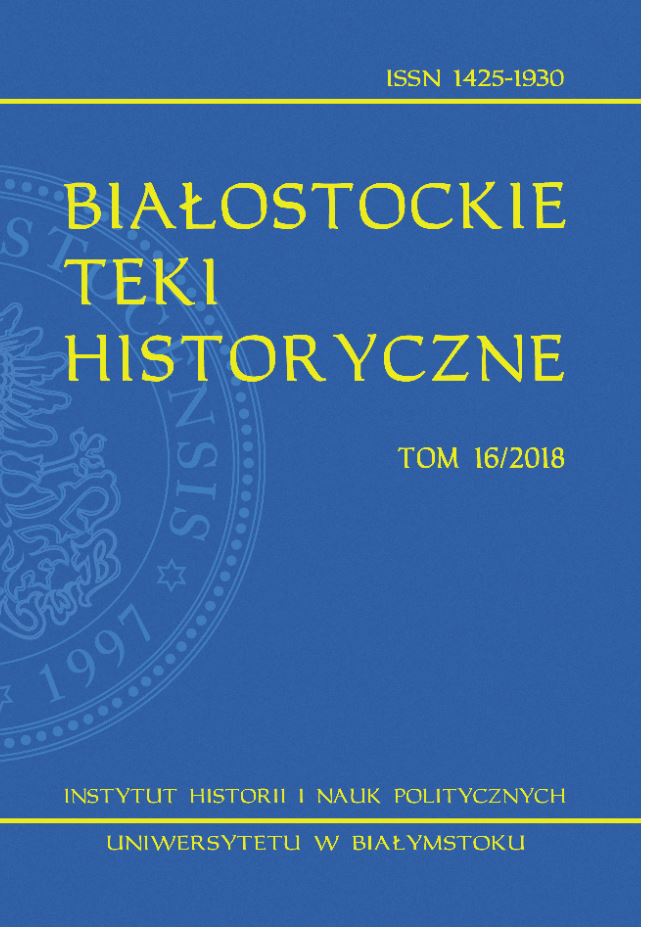The status of prisoners of war before its regulation in international law on the example of Polish prisoners of war of the Grande Armée in Russian captivity (1812–1816)
The status of prisoners of war before its regulation in international law on the example of Polish prisoners of war of the Grande Armée in Russian captivity (1812–1816)
Author(s): Adam MiodowskiSubject(s): History, Law, Constitution, Jurisprudence, History of Law, Human Rights and Humanitarian Law, Military history
Published by: Wydawnictwo Uniwersytetu w Białymstoku
Keywords: Napoleon’s expedition to Moscow in 1812; Polish prisoners of war in Russia; Congress of Vienna 1814–1815
Summary/Abstract: Not much is known about the mode of debating or the circumstances inwhich the 16 delegations to the Congress of Vienna worked out a consensus onlimiting the newly laid down international humanitarian law to the “Declarationon the Abolition of the Slave Trade” and on omitting the issue of prisonersof war. It is not known whether the said resignation occurred only during themeeting in Vienna or already at the preliminary stage before the conference. Thelatter option is supported by the fact that as early as summer 1814 the Russiansand French had established a bilateral agreement on repatriation of Napoleonicprisoners of war.The only way to find answers – not only about the circumstances in whichthe decisions to leave out the case of prisoners of war from the initial regulationswithin the scope of the international humanitarian law were made in Vienna, butalso about the consequences of the said omission for the group of thousands ofPolish prisoners of war from the Grande Arm´ee in Russian captivity – is to referto source materials. It turns out that in the latter case, the failure by the Congressof Vienna participants to attempt to provide common legal regulations for theinternational community regarding prisoners of war remaining in captivity boreserious repercussions.Due to the status of the Kingdom of Poland within the boundaries of imperial Russia, the process of releasing Polish Grande Arme prisoners of war fromcaptivity was not typical. Its implementation was not based on an inter-statebilateral agreement as was the case between Russia and France, but was aneffect of unilateral decisions made in Petersburg upon merely formal (actuallytechnical) consultations with the authorities of the Kingdom of Poland.ArméeéNot much is known about the mode of debating or the circumstances in which the 16 delegations to the Congress of Vienna worked out a consensus on limiting the newly laid down international humanitarian law to the “Declaration on the Abolition of the Slave Trade” and on omitting the issue of prisoners of war. It is not known whether the said resignation occurred only during the meeting in Vienna or already at the preliminary stage before the conference. The latter option is supported by the fact that as early as summer 1814 the Russians and French had established a bilateral agreement on repatriation of Napoleonic prisoners of war. The only way to find answers – not only about the circumstances in which the decisions to leave out the case of prisoners of war from the initial regulations within the scope of the international humanitarian law were made in Vienna, but also about the consequences of the said omission for the group of thousands of Polish prisoners of war from the Grande Arm´ee in Russian captivity – is to refer to source materials. It turns out that in the latter case, the failure by the Congress of Vienna participants to attempt to provide common legal regulations for the international community regarding prisoners of war remaining in captivity bore serious repercussions. Due to the status of the Kingdom of Poland within the boundaries of imperial Russia, the process of releasing Polish Grande Arm´ee prisoners of war from captivity was not typical. Its implementation was not based on an inter-state bilateral agreement as was the case between Russia and France, but was an effect of unilateral decisions made in Petersburg upon merely formal (actually technical) consultations with the authorities of the Kingdom of Poland.
Journal: Białostockie Teki Historyczne
- Issue Year: 2018
- Issue No: 16
- Page Range: 87-103
- Page Count: 17
- Language: English

